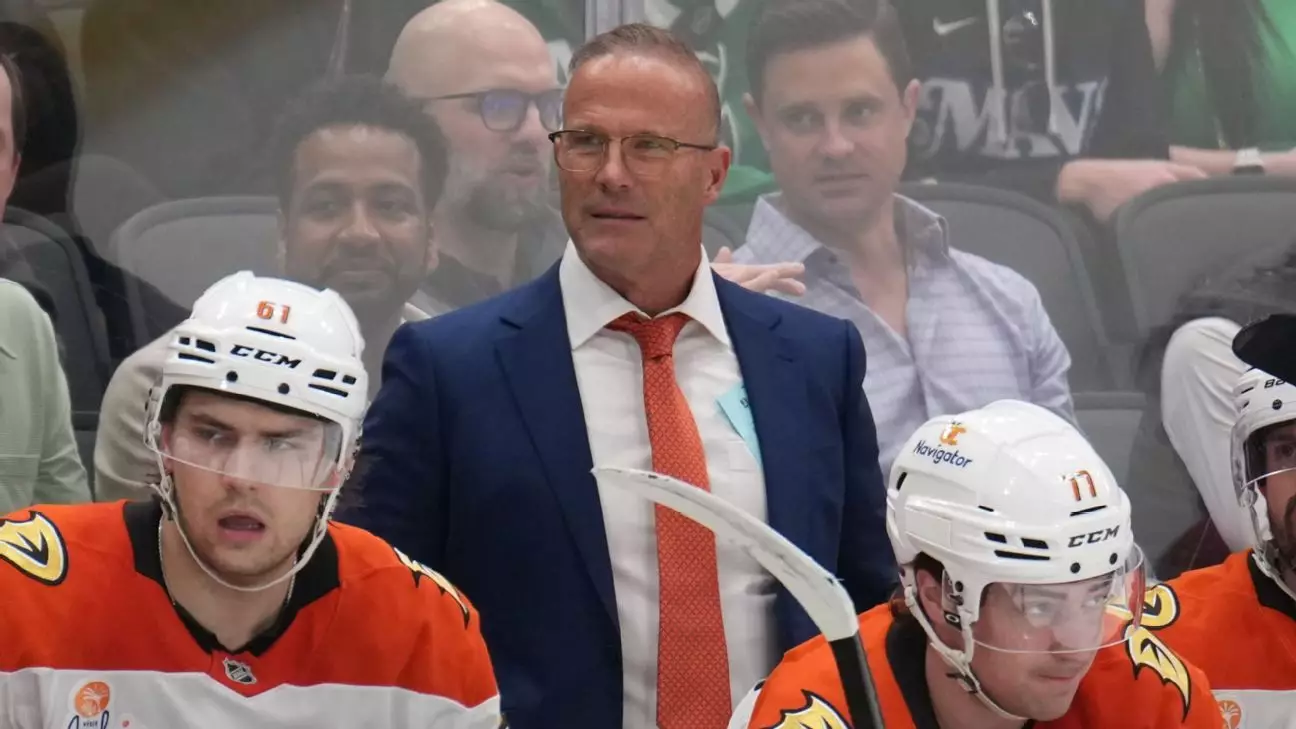In a dramatic turn of events, the Anaheim Ducks have officially parted ways with head coach Greg Cronin after just two seasons at the helm. This decision, announced on Saturday, marks a pivotal moment for the franchise as it seeks to reclaim its former glory. Cronin was initially hired in June 2023 to steer a rebuilding team, signing a contract that would have extended through the 2025-26 season. However, a season record of 35 wins, 37 losses, and 10 overtime losses—notably an improvement but still lacking—has led to an abrupt end to Cronin’s tenure. The Ducks’ record reflects a .488 points percentage, insufficient to inspire confidence given that the team has missed the playoffs for a staggering seventh consecutive year.
The Context of Cronin’s Tenure
The 61-year-old Cronin, who previously led the AHL Colorado Eagles, faced significant challenges as he attempted to mold a young roster that has struggled to find its footing in the competitive realm of the NHL. During his time, the franchise saw glimpses of hope through emerging talents like Leo Carlsson, Mason McTavish, and Cutter Gauthier. Yet, despite these promising players, the overall performance under Cronin did not translate into consistent success. The Ducks notably finished the season ranked 30th in offensive production both years of his tenure, which has undoubtedly drawn the ire of fans and analysts alike.
General Manager’s Perspective
Pat Verbeek, the Ducks’ general manager, articulated his rationale for this decision following an early morning meeting with Cronin. He expressed gratitude for Cronin’s hard work while emphasizing the necessity for a “new voice” to reinvigorate the team’s ambitions. Verbeek’s comments suggest a shift in philosophy; he boldly stated that the team should be poised to make the playoffs next season, a declaration that signifies a robust desire for immediate improvement. His assessment that the roster is headed in the right direction, despite the need for change, underscores a delicate balance between optimism and the harsh realities of competitive sports.
The Fans and Players: Mixed Reactions
Reaction from the fanbase and the players has been mixed. There was palpable frustration directed towards Cronin, who received criticism for not affording enough opportunities to younger players at critical moments. The choice to rely heavily on veteran players like Troy Terry, Frank Vatrano, and Alex Killorn, instead of capitalizing on the youth movement, raised eyebrows among those hopeful for a transformative season. Additionally, the apparent stagnation of star center Trevor Zegras, who recorded only 47 points in 88 games over two seasons marked by injury, speaks to a broader issue regarding player development and engagement under Cronin’s leadership.
The Future is Now: Building Around Young Talent
Looking forward, the Ducks have a rich tapestry of young talent worth harnessing. The emergence of offensive juggernauts from the youth ranks provides an encouraging foundation, yet the hire of a new coach will be crucial in realizing this potential. The next coach will need to align with the organizational vision of fostering young stars while instilling a competitive edge. Whether it’s adopting a more aggressive style of play or emphasizing defensive discipline, the incoming coaching staff will need to navigate this transitional phase with intelligence and innovation.
It’s clear that the Ducks are on the cusp of something significant, but the question remains: will the next head coach effectively harness the potential of the current roster? As the franchise bids farewell to Cronin, the ambition to not just reach, but to succeed in the playoffs next season casts a long shadow on the process ahead. The Ducks’ commitment to improvement is commendable, but translating this vision into tangible success will require strategic acumen and another leap of faith.

